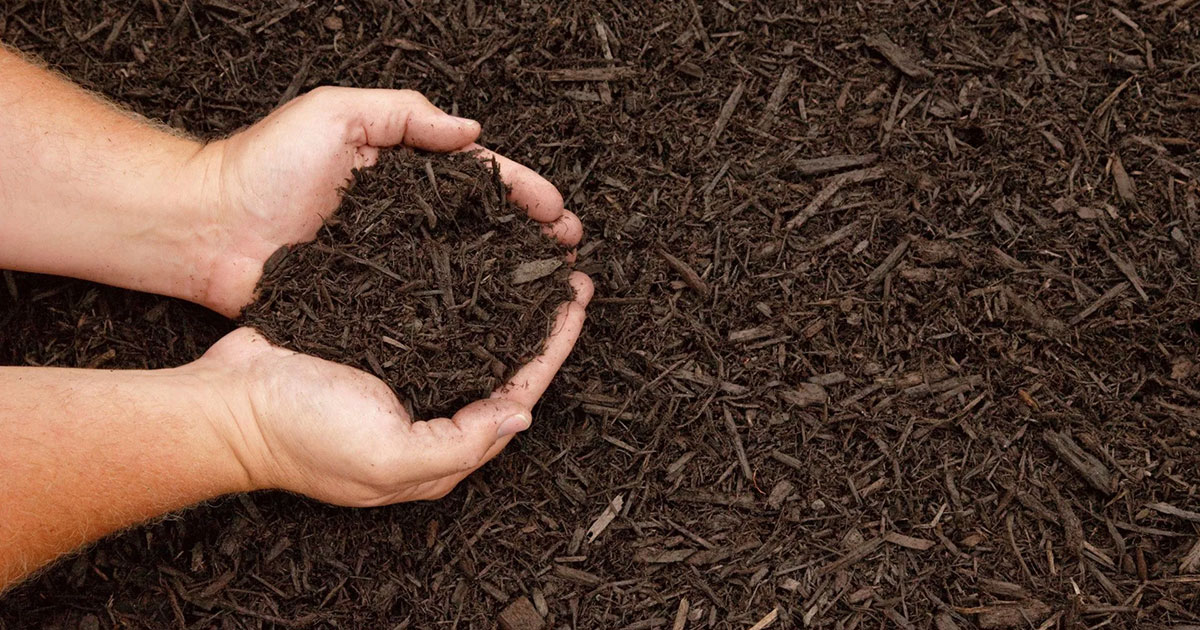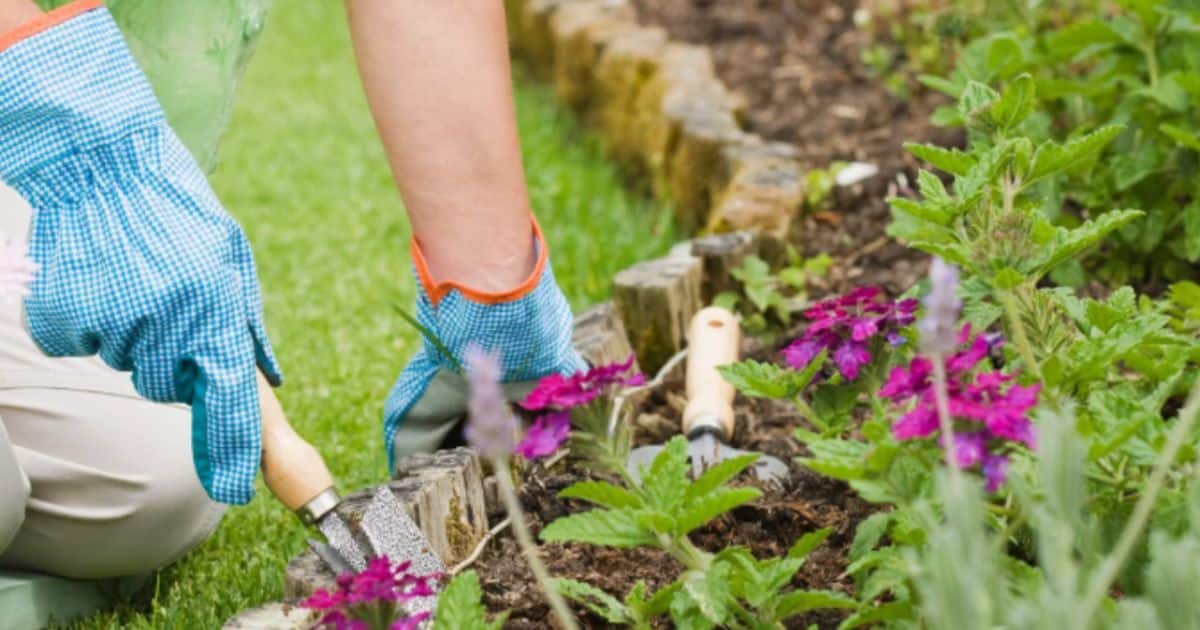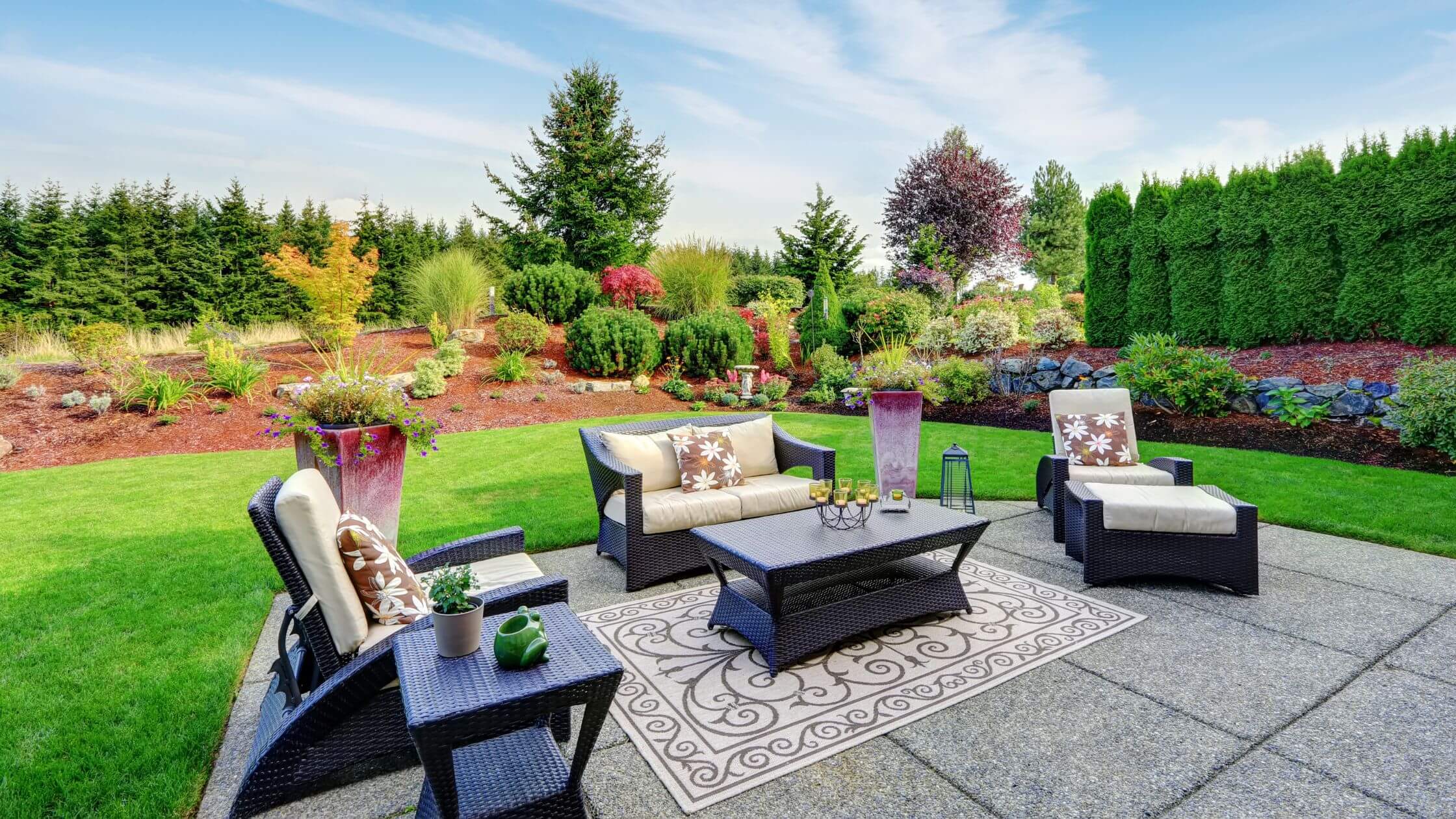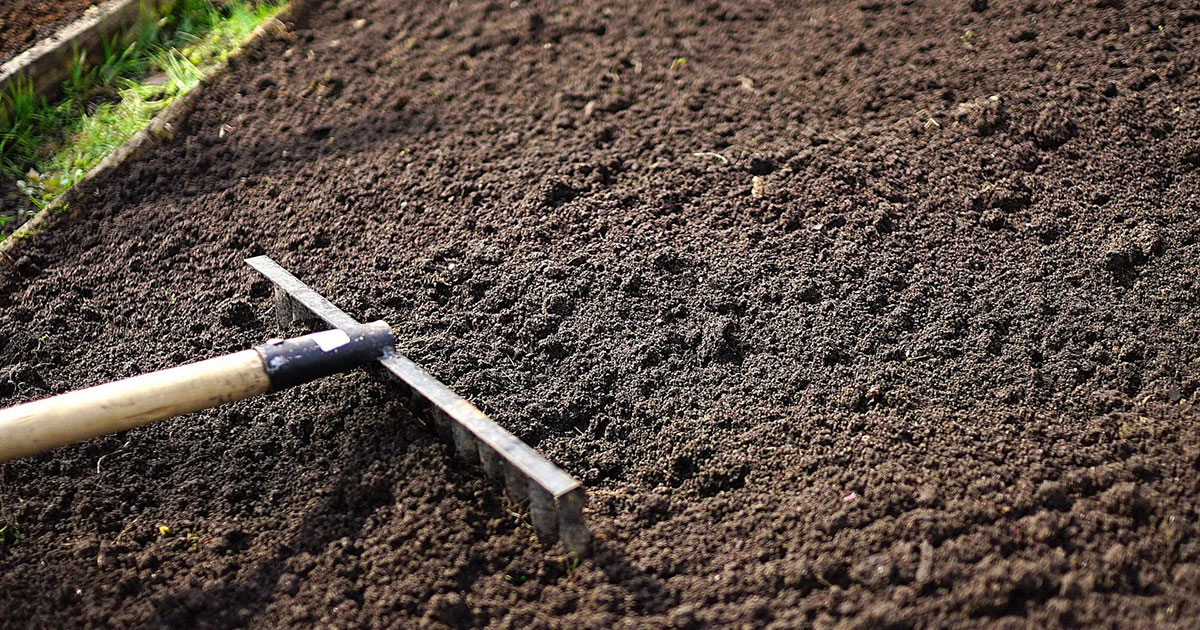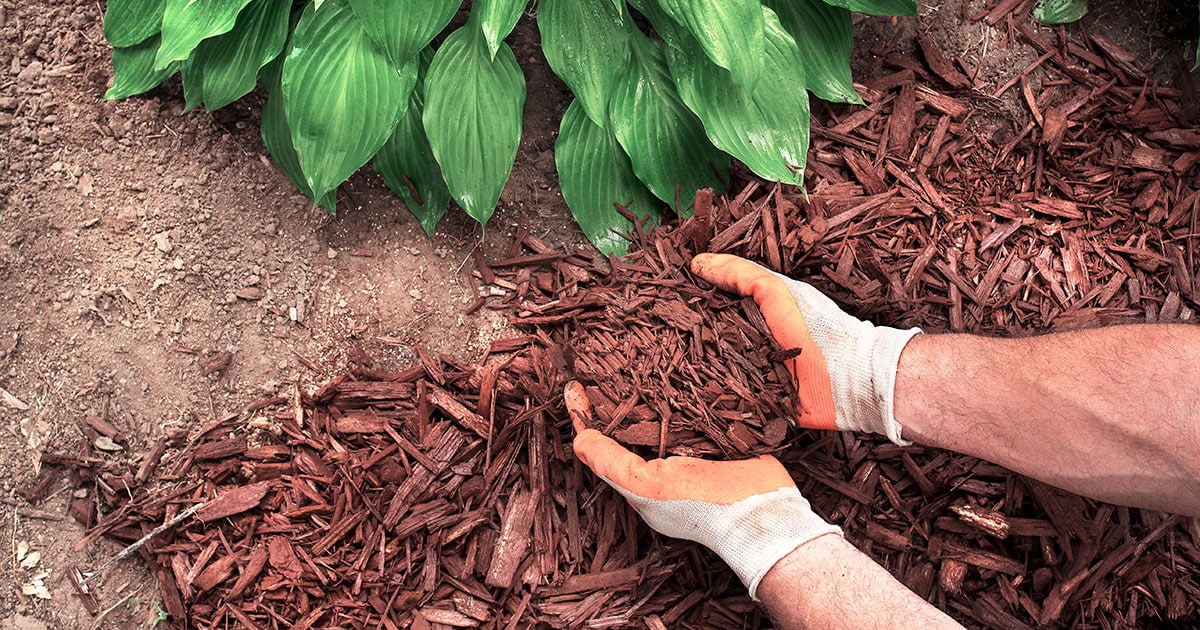Mulching is the act of placing a layer of material on the surface of the soil to suppress weed growth, conserve soil moisture, and, in some cases, improve the overall appearance of your garden. Mulches come in many forms, either organic or inorganic.
Choosing the Right Type of Mulch for Your Landscape
Before getting started, let’s take a look at some of the reasons you might consider using mulch in your landscape:
1. Mulches and Weed Control
Mulches can be used to suppress weed growth. When applied properly, proper mulches block sunlight from reaching the soil surface, therefore inhibiting weed growth.
2. Mulches and Water Conservation
Placing a layer of mulch over your soil can also help reduce water evaporation in garden beds. This is because mulch acts as a barrier, preventing the sun from evaporating water that’s close to the soil surface.
3. Mulches and Soil pH
Some mulch types can also help increase the soil pH in your garden beds. Try using pine needles to achieve a more acidic landscape, or opt for cocoa shells or coffee grounds to increase the alkalinity of your soil.
Types of Mulches for Your Landscape
Now that you know a bit about how and why to use mulch, let’s take a look at the most popular types that you can find at garden centers:
Bark mulch: A favorite for landscapers and home gardeners alike is bark mulch. Why? Well, there are two important reasons: First, it’s relatively inexpensive. Second, it comes in various colors, so you can choose one that fits well with your landscape design. You can also find conditioners for bark mulch if desired.
Wood chips: If you’re looking to achieve a natural-looking landscape, try using wood chips as your mulch of choice. Wood chips are very inexpensive and have a beautiful appearance, but be aware that they can take some time to settle into your landscape.
Shredded hardwood mulch: Created from finely shredded hardwood, this type of mulch is very similar in appearance to bark mulch. But while it looks the same, it’s more lightweight and easier to spread than traditional mulches.
Straw mulch: Straw mulch is composed of dehydrated pieces of wheat, oat, or barley. It’s another good choice for your garden because it’s inexpensive and easy to spread. Further, after you apply the mulch, it will eventually decompose into the soil over time.
Inorganic mulch: For those of you who want to avoid using organic materials in your garden, there are plenty of inorganic mulching options as well. Inorganic mulch comes from a variety of sources, including rock, stone, and gravel. They are also easy to spread and provide a nice finished look to your landscape.
The typical homeowner devotes around 70 hours a year to maintaining their lawn and garden, and proper mulching is a key component to keeping your yard healthy (per Ditech). That being said, it’s a good idea to take a few minutes to learn about the different types of mulches available before making your decision.
